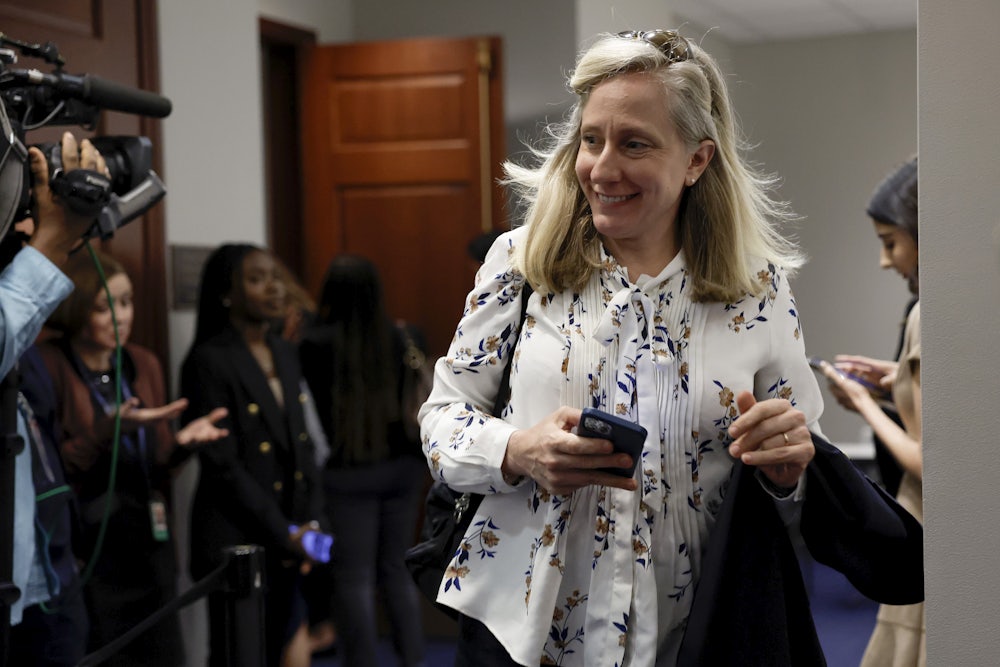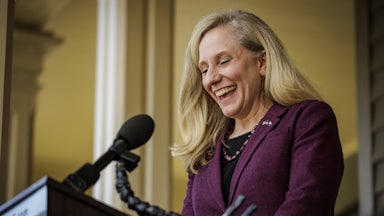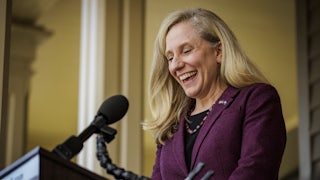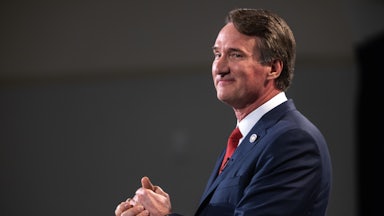With Representative Abigail Spanberger’s announcement that she will not seek another term in Congress, instead opting to run for governor of Virginia in 2025, Democrats are preparing to mount a defense to retain control of the important swing district she captured back in 2018.
While Spanberger successfully defended her seat in two subsequent elections, Republicans have reason to feel bullish about their chances of taking back the seat once held by former House Majority Leader Eric Cantor. Shortly after Spanberger announced her plans to run for governor, both the Cook Political Report and Sabato’s Crystal Ball changed their ratings for the district from “Likely Democrat” to “Lean Democrat”—a push in the Republican direction. “Nothing is going right for Democrats in Virginia’s Seventh District, but the NRCC is all hands on deck to flip this now-open seat and grow the House Republican majority,” said Delanie Bomar, a spokesperson for the National Republican Campaign Committee, in a statement.
Spanberger joins other swing-district Democrats in deciding to step down at the end of her term, and her announcement comes as Democrats already face somewhat of an uphill climb in trying to retake the House.
While the seat could still be categorized as a bit swingy, the pendulum has leaned more firmly to the left in recent years. With the exceptions of 2013, 2014, and 2021, the Democratic candidates for president, senator, and governor have won that district repeatedly since 2008, according to Sabato’s Crystal Ball.
“I’m sure the NRCC is happy in a relative fashion, but they’re looking at the same data I am, and they can’t be thrilled about their prospects to flip that seat,” said Carolyn Fiddler, a left-leaning state elections expert. “The NRCC is like, ‘Eh, better situation than we were in yesterday.’”
Virginia Democrats are also pleased that Spanberger opted to step down at the end of this term, rather than attempt to run a statewide campaign while remaining in Congress. Her successor will run in 2024, the same year that President Joe Biden is on the ballot. Democrats have historically done well in this district in presidential seats, while Republicans have been more likely to succeed in off-year elections.
One House Democratic staffer called it a “team player move” by Spanberger, because it means the Democratic candidate to succeed her will not be running in a special election or midterm in 2026. “Open seat in a presidential year means maximal turnout to elect someone who will go into ’26 as an incumbent,” the staffer said. “I think most people would have kept their seat to run, [so] people [are] really happy with this move.”
Spanberger was elected in 2018, defeating the conservative Republican incumbent, Representative Dave Brat. After a challenging reelection bid in 2020, she was drawn into a more comfortably Democratic seat after the state underwent redistricting—although the vast majority of the northern Virginia seat was new political territory for her. Still, Spanberger raised more than $9 million in the race against far-right Republican Yesli Vega, and won reelection in 2022 with 52 percent of the vote.
Democrats achieved mixed results on that same turf during this November’s state legislative elections; while they won a competitive state House seat in the Fredericksburg area, a Democratic candidate narrowly lost a state Senate seat. Republicans will also point out that, while Democrats now have a majority in the state legislature, their margins are exceedingly narrow and Republican candidates won several districts that Biden carried in 2020.
Kyle Kondik, the managing editor at Sabato’s Crystal Ball at the University of Virginia’s Center for Politics, said that the “signs are promising” for Democrats in the exurban Washington area. The district has a significant Black and Latino population, which may be more likely to turn out during a presidential year.
Given the high-profile nature of the district, several candidates are expected to jump into the race. Yevgeny Vindman, a former national security official, announced his bid for the seat on Wednesday. He and his twin brother, Alexander Vindman, were thrust into the national spotlight after raising the alarm about former President Donald Trump’s behavior toward Ukraine in 2019. Other potential Democratic candidates include Delegate Elizabeth Guzman, who was a prominent supporter of Senator Bernie Sanders’s presidential campaign in 2020, state Senator Jennifer Carroll Foy, state Senator Jeremy McPike, and former Delegate Hala Ayala.
For her part, Spanberger may play a role in campaigning for her eventual successor. She crossed the state ahead of the elections earlier this year, supporting several candidates for the legislature.
“Abigail knows that the Seventh District is home to many talented Virginians who are dedicated to the future of their communities,” a spokesperson for Spanberger said in a statement. “She will not be endorsing a candidate at this time, but she looks forward to leaders stepping up to make sure this district continues to have people-focused, results-oriented representation.”
The Republican side is also likely to be competitive: Derrick Anderson, who was defeated by Vega in the 2022 primary, is running again for the seat. But others may also throw their hats in the ring. State Senator Bryce Reeves, who also ran in 2022, and state Senator-elect Tara Durant, who recently won the competitive Fredericksburg-area district, are just two of the potential competitors.
But the biggest complicating factor in the race may have nothing to do with who ends up earning the nomination. “That district is not really a race that would be defined by who the candidates are. It’s going to be defined by who the candidates are above them on the ballot,” said Tucker Martin, a Virginia-based Republican strategist. Trump has “blocked out the sun” for Republicans in Virginia, Martin said; if he’s at the top of the ticket, Republicans could have even more of an uphill battle in winning the seat.
“If the nominee ends up being Nikki Haley or Ron DeSantis, then I would say, yeah, if Republicans put up a good candidate in the 7th [district], they could put it in play. But if the trajectory we’re on right now continues, and Donald Trump is running, I don’t know how a Republican overcomes those headwinds,” Martin said. “It’s just too difficult, in a state where he lost by 10 points, to think that in a district that does lean Democratic, you’re going to be able to find a nominee who can somehow bridge that gap. People are not really splitting their tickets nowadays.”
Spanberger’s early announcement will allow her potential Democratic successor plenty of runway to plan for the primary and general elections. Despite President Joe Biden’s relative unpopularity, Kondik said, his presence at the top of the ticket would likely not hinder the eventual Democratic nominee; even if a Republican won the presidency, he predicted, the turnout might benefit the Democratic candidate for Virginia’s 7th district more than the Republican.
“If Democrats are losing a district like this, they’re not going to win the House,” said Kondik. “It’s bluer at the presidential level than the nation as a whole. It covers some areas that are arguably trending toward them. So I think it’s a must-hold for Democrats.”










